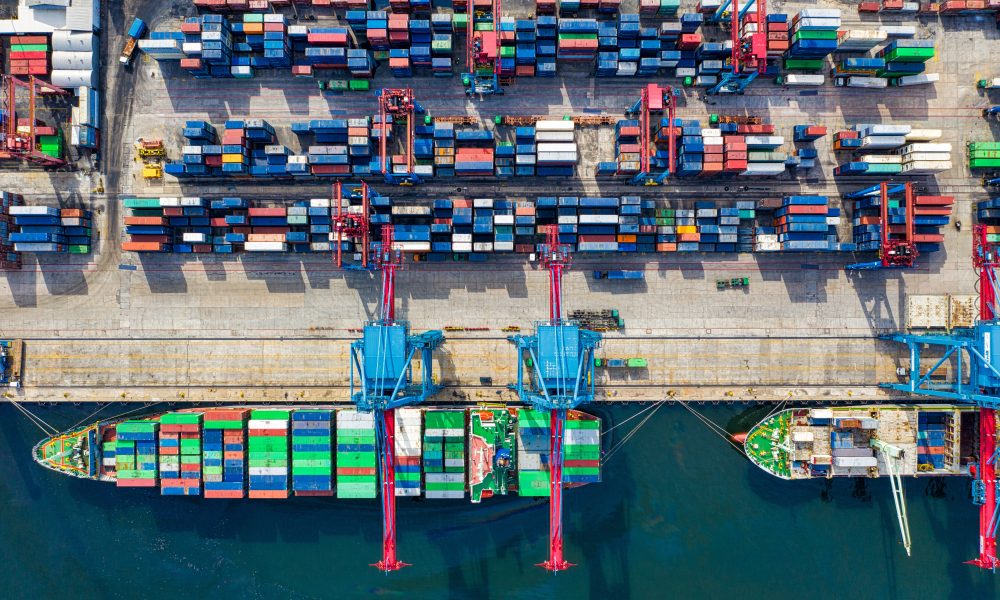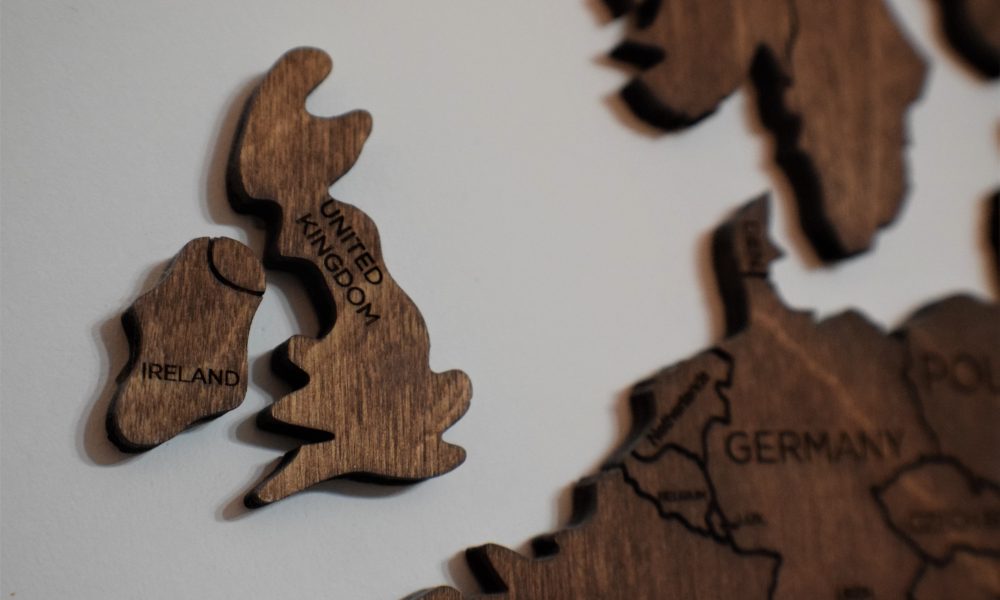Tag: Brexit
Trading in Goods post Brexit
For many, Brexit continues to be the undefined, being negotiated by the unprepared, in order to get the unspecified, for the uninformed. For others, Boris Johnson’s hard-knuckled talk, timed to boil down to deadline day, represents the dominant strategy that always had to be played against a fiercely rigid opposition- one that also risks losing out, albeit less than the protagonist.
In this post we will focus on practical examples of trading in goods post Brexit on 1 January 2021, paying special attention to taxation.
IMPORTER OF EU GOODS
Dom is a spectacles retailer based in England. Some of the spectacles he sells are purchased from a Spanish supplier called Ojos. What will be the difference between shipments arriving after 1 January 2021 compared to now?
In short, all imports of goods arriving into the country will be subject to import VAT and potentially customs duty. Traders will require an EORI number to move goods between the UK and non-EU countries.
Import VAT and Postponed Accounting
Concerning VAT, there will be no difference in Dom importing goods from an EU or non-EU country. “Postponed accounting” will be available for all imports made by a VAT registered business- that is for both EU and non-EU imports. Postponed accounting means Dom will declare and recover import VAT on the same VAT Return, rather than having to pay it upfront and recover it later. This is a cash-flow benefit for businesses that previously imported from outside the EU where VAT was paid on arrival and later claimed as input tax on a VAT return up to three months later. Import VAT certificate (C79) will no longer be issued, but can instead be downloaded from the HMRC website.
Dom does not need to apply to use postponed VAT accounting: it can be requested automatically when the shipment arrives. If however Dom deregisters, VAT on future imports would be paid at the time of arrival in the UK and become an exra business cost.
Customs Duty
From 1 January 2021, Dom will need to make customs declarations when he imports goods from the EU. In some situations, you can delay making a declaration for up to 6 months after you imported the goods. For controlled goods such as alcohol and tobacco however, a declaration must be made when the goods arrive. You may want to get someone to deal with customs for you or find a customs provider to help you.
A comprehensive set of actions for goods importers can be revised by visiting gov.uk, including finding out whether you can use postponed VAT accounting and checking the rate of customs duty and VAT on imports.
Instrastat
For UK businesses that buy goods from EU suppliers exceeding £1.5m, intrastat declarations must continue to be completed in 2021 for arrivals of goods from the EU. For dispatches from the UK, the intrastat reporting obligations only apply to goods being ‘exported’ from Northern Ireland to any EU VAT registered customers in case a threshold of £250,000 is exceeded.
EXPORTS
Back to Dom, he has received an order from a consumer based in Germany for a pair of spectacles. Until 31 December 2020, Dom will ship it to the customer and charge UK VAT at 20%. If Dom sells more than €100,000 of goods into Germany in a calendar year, to non-VAT registered customers, he must register for VAT in Germany and charge 19% German VAT on future sales. This is the essence of the “distance selling threshold” rules.
From 1 January 2021, the situation changes. First, the distance selling rules become obsolete, as the UK is no longer part of the EU. Instead, any shipments of goods from a UK supplier will be subject to VAT and duty when they arrive in the other EU country, so 19% VAT plus duty in the case of Germany. Dom’s sales will be zero rated for UK VAT purposes, in the same way that exports of goods to non-EU countries are zero rated.
This may pose a commercial and competitive hurdle for Dom. If before 1 January 2021 Dom bought spectacles from Ojos in Spain for £50 and applied a mark-up of 100% plus VAT for his sales, he will charge £120 for a business-to-consumer sale in Germany. If after 31 December 2020 Dom now pays customs duty of say 5% when the goods are imported from Spain to the UK, this will yield a cost of sales figure of £52.50 and therefore a selling price of £105. The export to the German consumer will now be zero rated for UK VAT but subject to German VAT and customs duty when it arrives there. If the import duty was 10%, with the VAT added on top, this would yield a final selling price of around £137, that is £105 plus £10.50 duty and 19% VAT on £115.50.
Warehouses in Europe
Like Dom, there is the possibility that clients could face a double duty charge on goods arriving into the UK from an EU supplier and then shipped out to the EU again. An EU warehouse may be an option in this scenario, obtaining a local VAT number to buy and sell goods from there. The challenge is for each business to consider its supply chain and where optimal trading outcomes may lie. Afterall some goods that are standard rated in the UK might be subject to reduced VAT rates in other EU countries. And some goods will be duty free to help the position further.
OTHER VAT SCHEMES
Triangulation
Triangulation is another important VAT simplification that may be lost after Brexit. UK companies currently relying on triangulation in order to avoid the need to register for VAT in an EU Member State, will also need to assess their position. Such arrangements will no longer be available, and this may result in multiple VAT registration requirements.
Margin schemes
Margin schemes involve goods, such as the second-hand margin schemes. In October 2020, HMRC issued a policy paper ‘Accounting for VAT on goods moving between Great Britain and Northern Ireland from 1 January 2021‘. The paper suggests that margin schemes will remain available for sales of goods that are purchased in Northern Ireland or the EU, whether sold to customers in Northern Ireland, Great Britain or the EU. On the contrary, margin schemes will not usually apply for sales in Northern Ireland where the stock is purchased in Great Britain.
DUTY FREE
Concerning us all, the Treasury has published its policy decisions regarding duty free shopping carried by passengers across borders:
- duty-free shopping will be extended to include EU countries;
- tax-free sales in airports of goods, such as electronics and clothing, for passengers travelling to non-EU countries will end; and
- VAT refunds for overseas visitors in British shops will be removed and replaced by a buy-and-ship mechanism.
WHEN MIDNIGHT STRIKES
All the while it is worth remembering that a sub-plot continues to develop in the guise of late-in-the-day Brexit negotiations, akin to booking a GP appointment for a patient(s?) approaching life-support. A free trade agreement post-Brexit is not the whole solution for UK traders. Many of the practical issues of moving goods will not be resolved by a free trade agreement. A free trade agreement will not remove the obligation to submit customs declarations for example, therefore problems with who is legally permitted to make declarations on export and import will arise. A deal would provide for tariff-free trade on goods that qualify as EU or UK made, helping cushion the blow for sensitive sectors including automotive and agriculture. It would also include other measures to help trade flow — recognition of truckers’ permits for example. Most trade experts agree it would be better than nothing.
HOW TO PREPARE FOR BREXIT – CHECKLIST
We would urge our clients to visit gov.uk/action-2021 for a step-by-step revision on how your business may be affected.
The Institute of Chartered Accountants in England and Wales has prepared a quick-start guide, outlining a variety of areas that could impact your business post Brexit, to help you prepare for when the transition period has ended. 10 questions to ask include:
- Where will you get more cash, if you need it?
- What help do you need to access potential new markets?
- Have EU/EEA/Swiss-national employees registered for the settlement scheme?
- How would additional customs duties affect your sales and supply chain?
- Are you ready for customs? VAT and customs duty requirements from 1 January 2021
- Can you benefit from simplified import procedures?
- How will your principal contracts be affected by Brexit?
- Do you receive personal data from the EU/EAA?
- How will changes to VAT affect you?
- Do your corporate reports reflect Brexit risk?
Whether you’re an existing client or don’t yet use our services, we would be pleased to help you. Contact Mouktaris & Co Chartered Accountants for expert advice or click here to subscribe to our Newsletter.
Trading in Services post Brexit
To start off with some good news, the rules for services will largely remain unchanged after 1 January 2021- as things stand.
Trading in services with the EU can be categorised into three broad scenarios which will cover most UK traders.
Sales of business to business (B2B) services
The general B2B rule (VAT Notice 741A) stipulates that if the customer is outside the UK and in business, no UK VAT is charged on the services in question. The one change come 1 January 2021 concerns EU sales lists, which will not need to be completed.
Practically, it would still be wise to show the EU customer’s VAT number on the sales invoice, because it’s the best evidence of a B2B deal (though there are other source documents). Afterall it is the B2B outcome which means the place of supply is the customer’s country, thereby making the supply “outside the scope” of UK VAT.
Buying services from EU suppliers
The status quo is that a VAT-registered UK business that buys services from abroad must apply the “reverse charge”. This applies to supplies not just from the EU. After 31 December 2020, nothing is planned to change.
Where the reverse charge applies to services which you receive, you, the customer, must act as if you are both the supplier and the recipient of the services. You simply credit your VAT account with an amount of output tax, calculated on the full value of the supply you’ve received, and at the same time debit your VAT account with the input tax to which you’re entitled, in accordance with the normal rules. If you can attribute the input tax due under the reverse charge to your taxable supplies (and so can reclaim it in full) then the reverse charge has no net cost to you. This tends to be the case if you are in business. If you cannot attribute the input tax due the effect is to make you pay VAT on the supply at the UK rate. This puts you in the same position as if you had received the supply from a UK supplier rather than from one outside the UK.
Sales of business to consumer (B2C) services
The general rule is that VAT is charged based on the location of the supplier, as opposed to of the customer with B2B. So if a UK accountant completes a tax return for a private individual living in France, the fee will be subject to 20% UK VAT. Where a B2C customer resides outside the EU, say in Canada, most professional services are not subject to UK VAT. The services for which this rule applies are listed in VATA 1994, Sch 4A para 16 and VAT Notice 741A, paragraph 12.
One consideration for these late-in-the-day Brexit negotiations is whether legislation will be passed to remove the difference between selling services to an EU versus a non-EU consumer. As things stand and per the HMRC press announcement, following 31 December 2020 no VAT will be charged on B2C services supplied to EU customers under UK VAT law for the professional services in question. So the accountant will no longer charge UK VAT to their B2C customer in France. The only way this would change is if the French tax authorities introduced a “use and enjoyment” rule for B2C accountancy services, so that work for customers living in France would be subject to French VAT.
Use and enjoyment rules
The use and enjoyment rules are intended to make sure taxation takes place where services are consumed, where either services are consumed within the UK but would otherwise escape VAT, or they would be subject to UK VAT when consumed outside the UK and EU.
Effective use and enjoyment takes place where a recipient actually consumes services irrespective of the contractual arrangements, payment or beneficial interest. The services covered by these rules are:
- the letting on hire of goods (including means of transport)
- electronically supplied services (B2B only)
- telecommunications services (B2B only)
- repairs to goods under an insurance claim (B2B only)
- radio and television broadcasting services
By way of example, consider a Canadian based videographer (in business) who tours the UK to video the Lake District, for a Canadian broadcaster. The Canadian videographer has hired a camcorder from a UK shop for a fee of £3,000. Under the general B2B rule, no UK VAT is charged on that sum- the place of supply being Canada- but now the use and enjoyment rules means that the place of supply reverts to the UK, where the camcorder is being used. He will be charged £600 VAT by the shop. This is the position that will take effect from 1 January 2021, for any businesses based outside the UK, including EU countries.
Whether you’re an existing client or don’t yet use our services, we would be pleased to help you. Contact Mouktaris & Co Chartered Accountants for expert advice or click here to subscribe to our Newsletter.
Trading with the EU post Brexit
Are you ready to do business with the EU?
With just over one month to go until the end of the transition period, there will be new rules to follow when trading with the EU post Brexit, from 1 January 2021 onwards.
The UK government seems intent on following through with its “no-deal” guidance, as it stands, despite not defining in any clear terms what benefits lie beyond. What is clear, is that the global playing field has evolved- consolidated, even since one month ago. The US president-elect has expressed his discord with a disjointed Europe and in Asia, fifteen countries have formed the world’s largest trading bloc, covering nearly a third of the global economy. One would expect these factors to shape the course of dialogue in the latest round of Brexit negotiations. Let’s hope it all proves to be a big anti-climax- which at this stage may come at best only in the form of a “window dressed” political agreement of reduced or zero tariffs.
We digress. You can find out what you need to do, as a business or as a citizen, by going to gov.uk/action-2021. The top actions you need to take now are:
Check the new rules on importing and exporting goods between the EU and Great Britain from 1 January 2021
Your business could face delays, disruption or administrative costs if you do not comply with new customs procedures from 1 January 2021. We will be releasing additional guidance on trading with the EU, specifically concerning VAT and import duties, in due course. A policy paper on how the border with the European Union will work after the transition period is available at gov.uk/government/publications/the-border-operating-model.
If you are planning to recruit from overseas from 1 January 2021, you will need to register as a licensed visa sponsor
You may not be able to legally hire people from outside the UK if you do not have a licence. New employees from outside the UK will also need to meet new job, salary and language requirements. Irish citizens and those eligible under the EU Settlement Scheme are not affected.
Use gov.uk to identify changes affecting manufactured goods, such as new marking requirements or approval needed, to ensure your business is ready to sell them in the UK and EU
You may not be able to sell your goods in the UK and the EU from 1 January 2021 unless you act.
If you are moving goods into, out of, or through Northern Ireland, check the latest guidance
Whether you’re an existing client or don’t yet use our services, we would be pleased to help you. Contact Mouktaris & Co Chartered Accountants for expert advice or click here to subscribe to our Newsletter.


